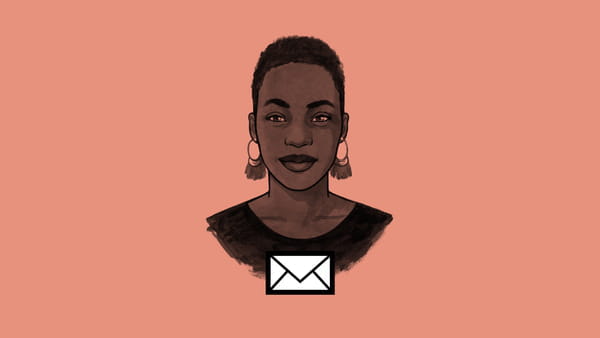Hi,
With only a week left until the Big Day of Love and Chocolates, all my social media feeds are awash with jokes, ads and lamentations about romantic love. I don’t find that surprising. What I do find surprising is the ongoing response to my last newsletter about what love requires of us, especially when we commit to its potential for true transformation.
I don’t think any of my newsletters has travelled as far or resonated as strongly as this one did. The response was enthusiastic, to say the least. And everyone, without exception, agreed with me. If you’ve been following my beat at all, you know that I don’t often get people unanimously agreeing with me. Yet, on the topic of radical, transformative love, it would seem that a good number of people – maybe even most – are in agreement.
"Love, of course, is more than the word has been starting to denote in the contemporary Anglo-Saxon tradition," wrote Gertjan Van Stam, a member, in response to my newsletter. "It means, among others, to live life together, to be convivial, to exhibit solidarity, to engage in sympathetic social relations, to join in, to help, to be compassionate."
From this response and others that I’ve received since last week, it’s clear to me that most of us know what real love is and recognise what it looks like in action. So why does it seem like we have so little of that kind of love, yet so much of the other kind – the surface, air-kiss, candy-floss variety?
When surprise proposals go viral, why do we so often see the kind that feels performative, materialistic and even manipulative, but rarely the kind that shows deep care, attention to detail, and emotional generosity? Why does it seem that we are more open to helping people in far-flung places than supporting those who are hurting in our own communities?
I think it’s because, despite what we know of love, we still approach it as if it is a (pleasant) feeling rather than as a commitment to generosity and care.
Of course, commitment is not easy. There’s a reason why an estimated half of all marriages end in divorce, after all. Somehow, we’ve collectively bought into the idea of romantic feelings as the truest form of love, resulting in a strangely widespread belief that love is a thing that happens to us, causes flutters in our bellies, and is no longer real if we stop feeling it.
But love is not a feeling. Love is a way of being and doing that prioritises the wellbeing of ourselves and others, whether or not we’re romantically involved with them. And it is a commitment to love, in its entire scope, that transforms it from a simple feeling in our bellies to a fire in our hearts; softly burning sometimes, fiercely raging at others, but always fuelling, illuminating and purifying us.
Commitment asks us to feel what we feel, then do what love asks of us regardless. Even – maybe especially – when what love asks is the difficult thing. It is commitment that activates the transformative potential of love. A heartwarming number of you have agreed with me that we need to see more of that in the world. So let’s commit to making it happen, shall we?
While we’re on the subject of commitment, I have a small request. This week, the editors I scammed into giving me a job (hi, Rob and Eliza!) wrote a two-minute explanation of how important it is for readers to commit to this news-making project that about 50,000 of you fell in love with over a year ago.
Like many of you, my desire to be part of The Correspondent came from a deep conviction that its values are exactly those which move humanity forward. Transparency. Collaboration. Inclusion. Hope based not just on a desire for change but also on a better understanding of the forces that shape current realities.
Those of you who have been with us on this journey so far may be fully aware that we would not be here without your support. Still, let me reiterate that our constructive, transnational take on the news literally could not exist without you.
As my colleagues and I share our learning curves and build our capacity to bring you actionable insights about the world, every second of our work is funded by members. To do our work to the best of our ability, we need to be able to plan for how it will be funded in the future. So if you value the way we reshape the news, then please consider signing up or renewing your commitment as a member right now.
The work of progress is never done. I would love to be able to contribute to it, as your Othering correspondent, for a good while. So I’d be thrilled if you could commit to making that dream a reality today, for the love of unbreaking news.
Till next time,
OluTimehin
 Want to receive my newsletter in your inbox?
Follow my weekly newsletter to receive notes, thoughts, and questions on the topic of Othering and our shared humanity.
Want to receive my newsletter in your inbox?
Follow my weekly newsletter to receive notes, thoughts, and questions on the topic of Othering and our shared humanity.

